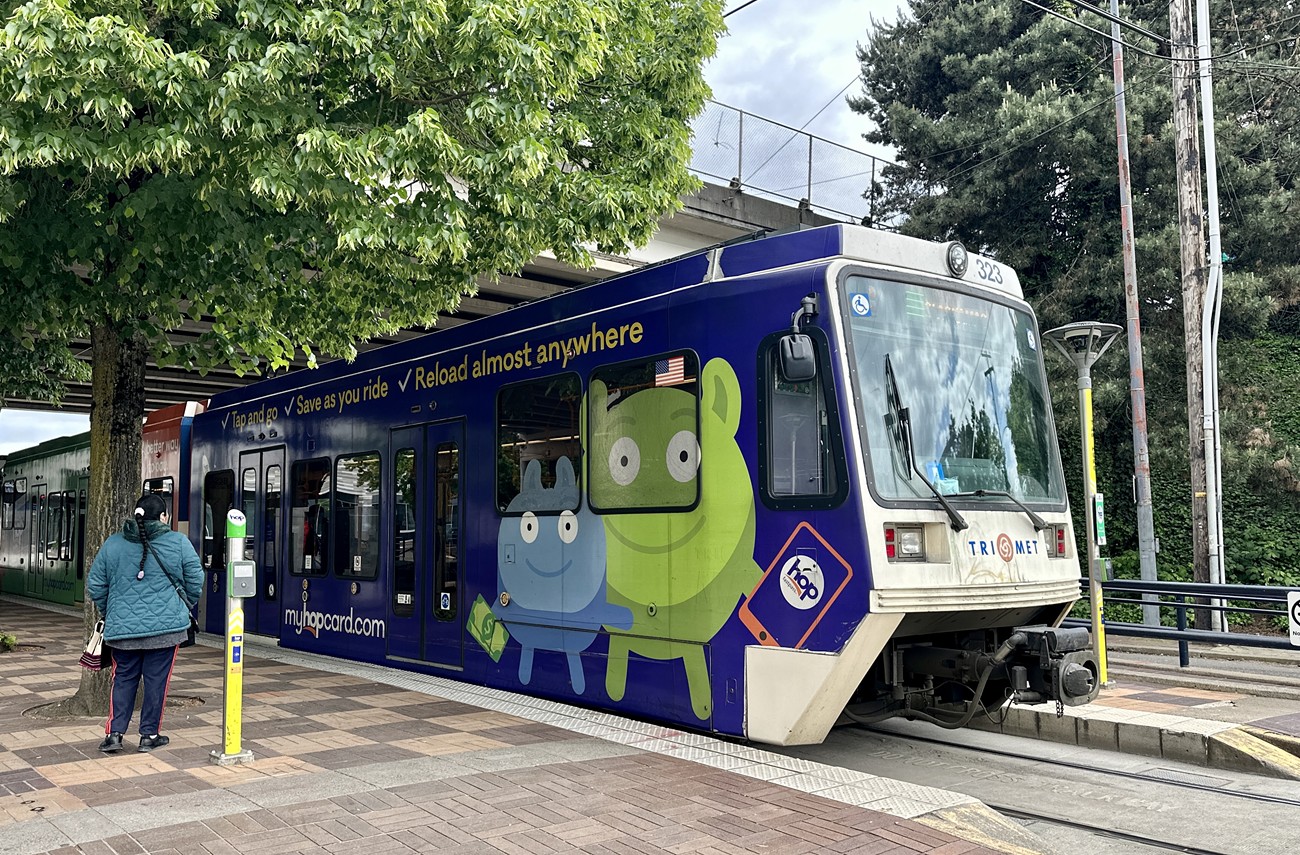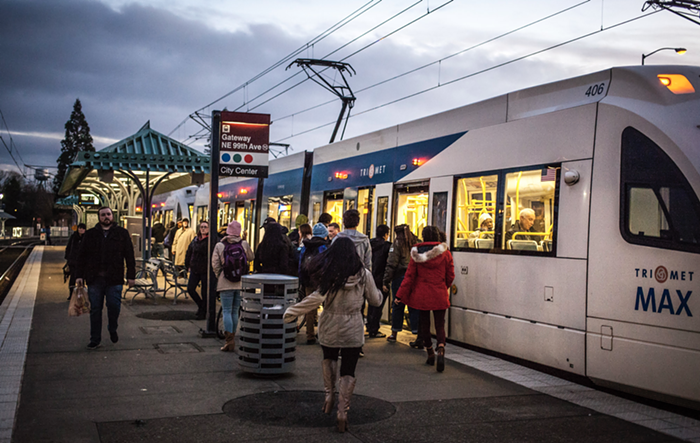When TriMet leaders first floated the idea of raising bus and MAX fares last November, they said it would be a necessary measure to solve the transit agency's financial shortfalls. The current price of a two-and-a-half-hour adult transit pass is $2.50, which TriMet board members said is not sufficient to stave off the agency's budget deficit.
“We’re at the point right now as an agency where we are up really almost against the wall,” TriMet board president Linda Simmons said at a meeting last fall. “We have a responsibility to the community to not cut off service or lay people off because we can’t meet our budget. Fare is our lever right now.”
TriMet board members decided to go forward with a plan to raise regular fares by 30 cents and Honored Citizen rates by 15 cents, starting in January 2024. The price of monthly and annual passes will remain unchanged. The plan faced immediate pushback from transportation justice and climate advocates, who said the price hike would be detrimental for Portland's equity and climate goals. TriMet's own community engagement efforts revealed the proposal was deeply unpopular with Portland transit users.
Fare increase opponents testified against the plan at an April TriMet board meeting. Now, led by advocates from nonprofit OPAL Environmental Justice Oregon, critics plan to protest the proposal during an upcoming meeting Wednesday, May 24, when the board of directors is expected to approve the fare hike.
"If you ride TriMet or have any intention to ride TriMet, this is going to impact you," Ellie Gluhosky, an organizer with OPAL, told the Mercury. "[A fare increase] will impact marginalized and oppressed communities the most. This is inherently something we need to come out strongly against."
According to TriMet's own outreach report on the fare increase proposal, the majority of community members surveyed said they were either against the plan, wanted to see changes to the rate structure, or see TriMet's service improved, before any price increase. Almost three-quarters of people said they would be impacted by a decision to raise fares, and 43 percent of survey respondents said they'd take fewer trips on TriMet.
“Public transit is my only way to get around, I don’t drive, I don’t have family or friends who drive. If you increase the cost, I still have to get around," reads one comment cited in the outreach report. "I can’t just stop going out, even things like grocery shopping, I have to get there on the bus. I will probably buy less groceries but I can’t just decide to walk places because I can’t walk very far.”
Critics note only a small proportion of TriMet's annual revenue comes from fares. The agency's approved budget for 2024 estimates passenger revenues will cover 8.5 percent of its total operating expenses, assuming the 30-cent fare increase is passed. But fares haven't always been such a small part of TriMet's operating budget. Before the pandemic, its budget accounted for about twice the passenger revenues it has now.
However, given the decline in transit ridership since 2020—which has been slow to bounce back even three years later—fare increase opponents say raising the price of taking the bus is just going to deter people from transit even more.
"If we’re going to enact real change and reduce Portland's greenhouse gas emissions, we have to incentivize transit use," Gluhosky said. "We want people to see that this is a dangerous precedent to set. It puts the health of our communities at risk."
OPAL members and other transportation justice advocates are proponents of fare-free transit, which they say would encourage more people to ride the bus and reduce TriMet's fare enforcement budget, among other benefits. But this isn't the route TriMet is likely to take anytime soon.
Ozzie Gonzalez, TriMet's Board Secretary and Treasurer, said in an email to the Mercury that while he "loves the enthusiasm for fareless transit," the "energy is misplaced on TriMet."
Gluhosky said she recognizes TriMet's financial woes, but thinks increasing ridership costs is the wrong way to go about solving them.
"The fiscal issues are real, but community members shouldn’t have to bear the burden," she said. "TriMet needs to identify revenue streams that aren't at the expense of the community, and we haven't been shown that research has been adequately conducted."
The fare increase would be the first hike in adult rates in over a decade for the transit agency.
TriMet notes the extra revenue will help "address inflation and the growing costs of operating our transit system." The agency is currently at a turning point as it works to recover from the pandemic through its "Forward Together" plan to expand bus service in the Portland area and increase ridership.
The rally against the fare increase will begin at 10:30 Wednesday morning, May 24, at the Japanese American Historical Plaza in Tom McCall Waterfront Park, across the street from the University of Oregon-Portland campus (70 NW Couch), where TriMet's board is scheduled to meet. More information about the event will be available on OPAL's Instagram page.
"It's going to be powerful to be in solidarity with community members," Gluhosky said. "It will be peaceful, but disruptive so we can’t be ignored."
This story has been corrected to note the fare change is a one-time increase.
Update: At the May 24 TriMet board meeting, members of the board of directors voted to pass the fare increase. The vote passed 6-1, with Kathy Wai casting the sole dissenting vote.




















